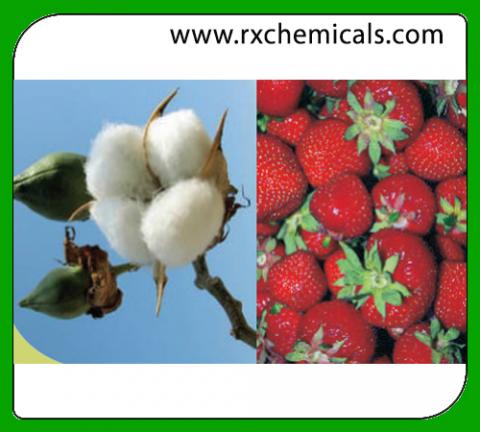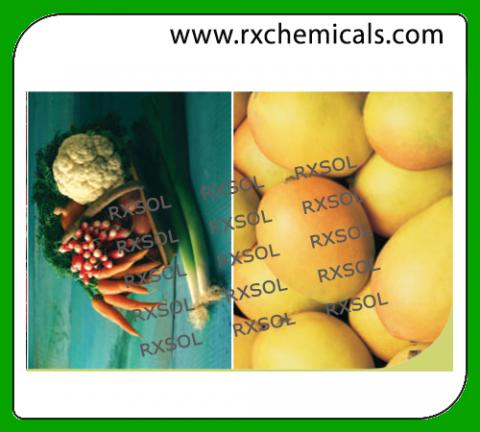

AGRISOL B 11
Boron 11%) standard borate commonly used for direct soil application, foliar spray or blending with bulk / liquid fertilizers & micronutrient mixtures.
AGRISOL B 11 (Boron 11%) standard borate commonly used for direct soil application, foliar spray or blending with bulk / liquid fertilizers & micronutrient mixtures.
AGRISOL B 11 S (Boron 11%) standard granular borate used for direct soil application or blending with bulk granulated fertilizers.
AGRISOL B 11 is the refined form of natural sodium borate.
AGRISOL B 11 is mainly composed of boric oxide (B2O3), sodium oxide and water. It is a mild, alkaline salt, white and crystalline, with excellent buffering and fluxing properties. When dissolved in water, it hydrolyzes to give a mildly alkaline solution, thus capable of neutralizing acidic soils.
AGRISOL B 11 is used as a source of micronutrient B and can be blended with commonly used bulk / liquid fertilizers & micronutrient mixtures for Soil application or Foliar Spray.
Boron - An Essential Plant Micronutrient
Boron is an essential nutrient required for all plant growth and must remain available for plant uptake during the growth period.
Boron plays an important role in
Sugar transport
Cell wall synthesis
Lignification
Cell wall structure
Carbohydrate metabolism
RNA metabolism
Respiration
Membranes
Root growth
Pollination
Boron Deficiency
Boron deficiency & positive response to B application has been reported in over 80 countries and on 132 crops over the last 60 years.
Earliest effect of boron deficiency in plants and trees is observed in outer membrane of cytoplasm of root cells, which are, altered in such a way that absorption of phosphorus, chlorides and potassium from the soil is reduced. Poor or weak root system affects the absorption of nutrients from soil and it also affects absorption of sugar cell in membrane.
Boron deficiency is particularly observed in root crops, leafy vegetables, fruit trees, tea, coffee, tobacco, olive tree, oil palm etc. In olive trees suffering from boron deficiency the yield drops drastically.
Plants require 13 mineral nutrient elements for growth. The elements that are required or necessary for plants to complete their life cycle are called essential plant nutrients. Each of these nutrients has a critical function in plants and are required in varying amounts in plant tissue.
Macronutrients like Nitrogen (N), Phosphorus (P), Potassium (K), Calcium (Ca), Magnesium (Mg) and Sulfur (S) are plant nutrients required in the largest amount in plants. Micronutrients like Zinc (Zn), Boron (B), Iron (Fe), Copper (Cu), Manganese (Mn) molybdenum (Mo) and Chlorine (Cl) etc are required in relatively smaller amounts.
RXSOL Agrichem Division is a renowned manufacturer and marketer of products that fulfill the essential nutritional needs of the crops.
Envisioned in the year 1995 Today we take pride in being one of the leading manufacturer of agrochemicals and fertilizer.
Products such as
Fungicides
Herbicides
Insecticides
Straight Fertilizers
Micronutrients
Water Soluble fertilizers
ORGANIC Fertilizers
FUNGICIDE
Fungicides are pesticides that kill or prevent the growth of fungi and their spores. They can be used to control fungi that damage plants,including rusts, mildews and blights. They might also be used to control mold and mildew in other settings.
1. Mancozeb 75% WP : MAC-THANE80 WP - Mancozeb75% WP is a dithiocarbamate fungicide and affects the nervous system through their main metabolite, carbon disulfide. It is a multisite protective fungicide and inhibits spore germination.
HERBICIDE
A herbicide is a pesticide used to kill unwanted plants. Selective herbicides kill certain targets while leaving the desired crop relatively unharmed. Some of these act by interfering with the growth of the weed and are often based on plant hormones.
1} Glyphosate 48% SL
2} Metribuzin 70% WP
3} Pendimethaline 30% EC
4} 2,4-D Amine Salt 58% SL
INSECTICIDE
Insecticides are pesticides that are formulated to kill, harm, repel or mitigate one or more species of insect. Insecticides work in different ways. Some insecticides disrupt the nervous system, whereas others may damage their exoskeletons, repel them or control them by some other means.
1}Alphacyermetharin 10% EC
2}Lambdacyhalothrin 5% EC
3}Cypermethrin 25% EC
4}Deltamethrin 2.8% EC
5}Deltamethrin 2.5% WP
6}Imidaclorid 17.8% SL
7}Imidacloprid 30.5% EC
8}Imidacloprid 48% EC
9}Lambdacyhalothrin4.9%
10}Acetamipirid 20% SP
11}Emamectin Benzoate 5% SG
12}Imidacloprid 70% WG
FERTILIZERS - 1}Boric Acid
2}Borax
3}Mono Potassium Phosphate
4}Calclum Nitrate
5}Urea Phosphate
6}Mono Ammonium Phosphate
7}Potassium Scheonite
8}NPK 19-19-19
9}NPK 20-20-20
10}NPK 13-40-13
11}Ammonium Sulphate
12}Zinc Sulphate Monohydrate
13}Zinc Sulphate Heptahydrate
14}Ferrous Sulphate Heptahydrate
15}Ferrous Sulphate Monohydrate
16}Magneslum Sulphate
17}Potassium Sulphate
18}Potassium Nitrate
19}NPK 17-17-17
20}Calclum Ammonium Nitrate
21}Diammonium Phosphate
22}Urea
23}Manganese Sulphate
Main consequences of boron deficiency in plants and trees, which can be easily seen, are as below
Leaves become misshapen, small, thick and brittle,
Growing points start dying
Watery patches develop in storage tissues
Fruit development is irregular and misshapen
Root growth is impaired
The best way to detect the boron deficiency is soil tests without causing any adverse effect on growth and yield.
Correcting Boron Deficiency
Boron deficiency can be remedied by correct & timely application of Agrisol B Fertilizer range. Agrisol B-Fertilizers containing varied amounts of Boron (as B) ranging from 11% upto 20% in all physical forms (Crystal, Crystalline, Granules & Powder) & customized packings to suit the needs of the farmers & bulk fertilizer industry. Application of Boronated / Boron blended bulk fertilizers like Boronated SSP, Boronated NPK, Boronated DAP etc. is another effective way of correcting boron deficiency.
AGRISOL B 11 (Boron 11%) standard borate commonly used for direct soil application, foliar spray or blending with bulk / liquid fertilizers & micronutrient mixtures.
AGRISOL B 11 S (Boron 11%) standard granular borate used for direct soil application or blending with bulk granulated fertilizers.
AGRISOL B 15 (Boron 15%) special borate for all fertilizer applications.
AGRISOL B 15 S (Boron 15%) special granular borate for direct soil application or blending with bulk granulated fertilizers.
AGRISOL B 20 (Boron 20%) highly soluble borate powder for blending with other liquid fertilizers, pesticides used for foliar spray, drip or fertigation.
AGRISOL B 11 (Boron 11%) slow release natural mineral borate for soil application.




